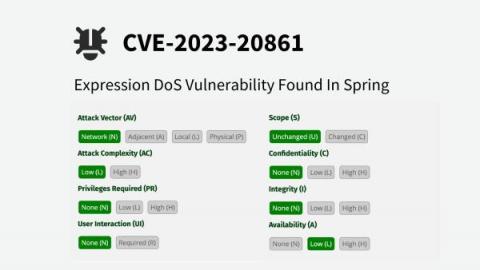Security | Threat Detection | Cyberattacks | DevSecOps | Compliance
Java
The SecurityManager is getting removed in Java: What that means for you
The Java Development Kit (JDK) library's java.security package is one of the most important packages, yet despite consistent updates, it remains vastly underutilized. In light of the increased emphasis on cybersecurity frameworks, including zero trust, it's imperative for Java developers to become familiar with Java SE's security libraries. As with any other field in information technology, cybersecurity has a capricious nature. After all, it has to keep up with the latest trends in cybercrime.
What is Java API?
5 Tips for Functional Testing in Java
Preventing Cross-Site Scripting (XSS) in Java applications with Snyk Code
Java is a powerful backend programming language that can also be used to write HTML pages for web applications. However, developers must know the potential security risks associated with Cross-Site Scripting (XSS) attacks when creating these pages. With the rise of modern templating frameworks, preventing security attacks through proper input validation and encoding techniques has become easier.











